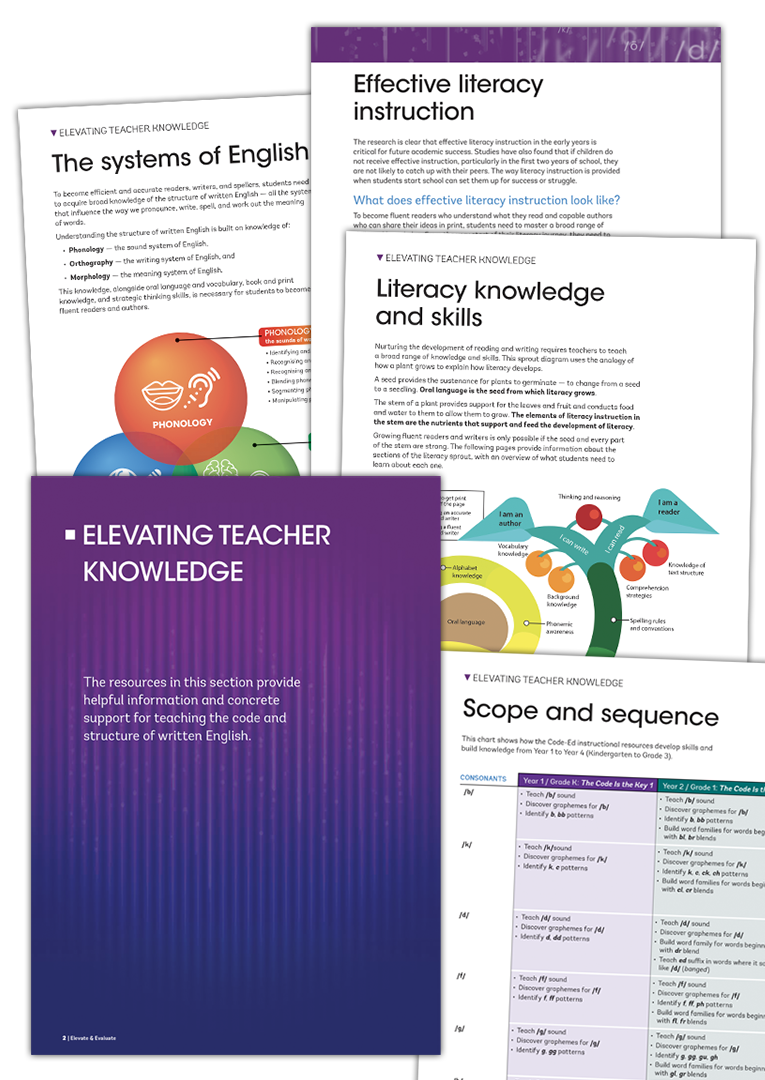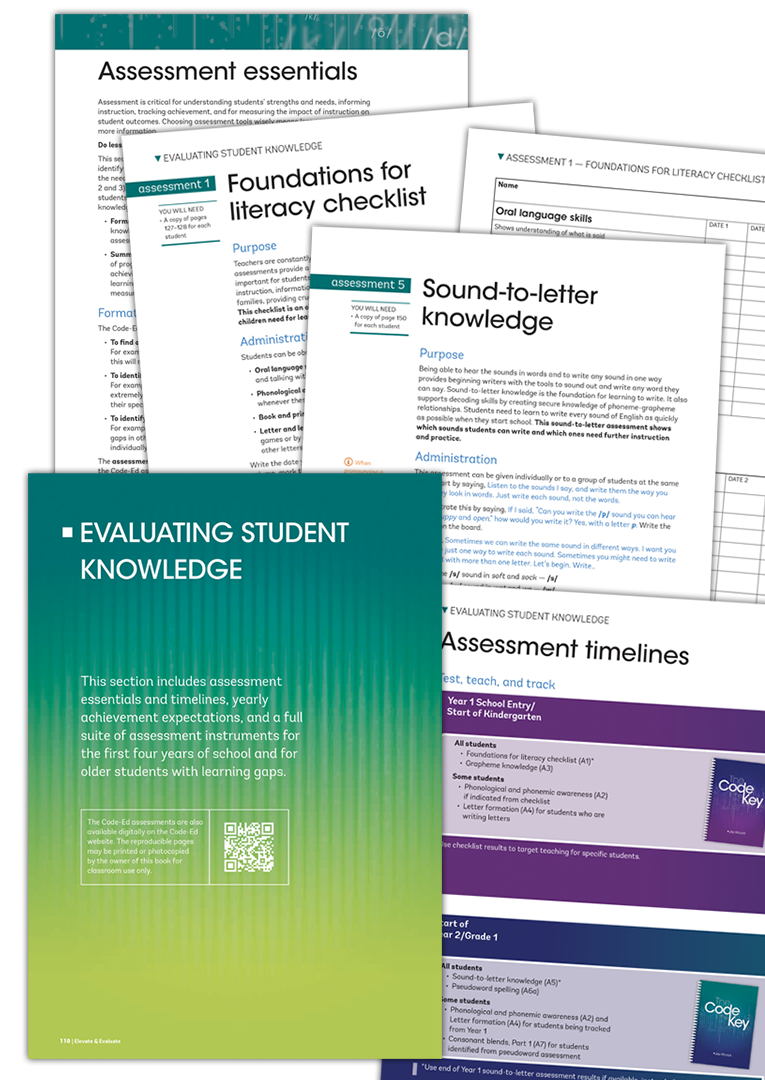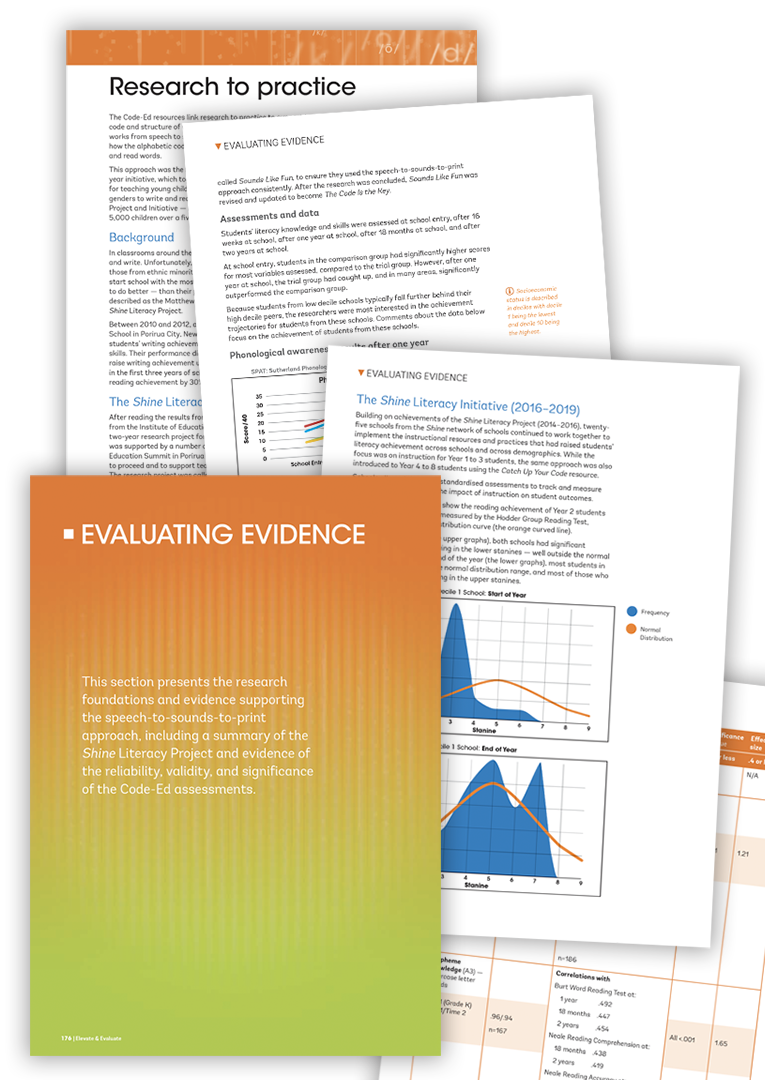Your cart is empty.
Visit the store to add items to your cart.
This professional resource supports teachers with the knowledge and tools they need to elevate literacy instruction and evaluate student achievement.
Elevate & Evaluate is packed with professional development materials for elevating teacher knowledge, a full suite of easy-to-use assessments for evaluating student knowledge, and clear evidence of efficacy for Joy Allcock’s speech-to-sounds-to-print approach for teaching the code and structure of written English.

"The resources and assessments throughout this book are a step above most programs. They are derived from many years of working in schools, developing programs and assessments that have been subjected to rigorous academic evaluation, and collaborating with teachers to ensure that the resources created are easy to use and work in real classrooms. This extensive work has given Allcock much clarity about teacher knowledge and about the value of using a linguistic phonics approach, which has significant advantages for teaching the alphabetic code."
Elevate & Evaluate is included in Year 1 of The Code Is the Key but can also be purchased separately.

The resources in this section provide helpful background information and concrete support for teaching the code and structure of written English. Topics covered include:
Teachers can use the professional development resources in this section to work alone or collaboratively with their peers to enhance their knowledge in these key areas and elevate their literacy instruction.

This section includes assessment essentials and timelines, yearly achievement expectations, and a full suite of assessment instruments for the first four years of school. The 11 assessments include:
These assessments can be used to drive instruction, track progress, and measure the impact of instruction on student achievement.

This section presents the research foundations behind the speech-to-sounds-to-print approach, including a summary of the Shine Literacy Project, which validated the efficacy of the approach, and evidence of the reliability and validity of the Code-Ed assessments. Contents include:
Find out how Elevate & Evaluate can help teachers elevate their knowledge, evaluate student understanding, and make literacy achievement soar.
"Thank goodness for authors like Joy Allcock who get the messages right — and for her relentless focus across many books on teaching the skills for learning to read, write, and spell."